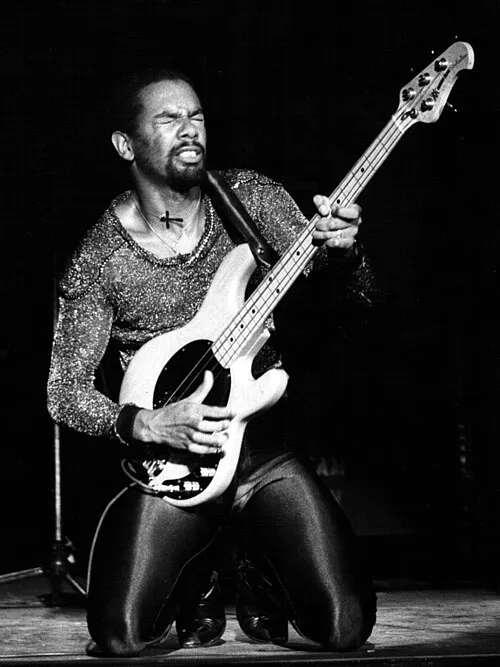In 2017, the iconic Ringling Bros. and Barnum & Bailey Circus held their last performance at the Nassau Veterans Memorial Coliseum, marking the end of an era for this legendary circus.
On May 21
17
Important Days
69
Important Events
346
Births and Deaths
recorded.
Holidays and Occasions
Events
Births and Deaths

Afro-Colombian Day: Celebrating Culture and Heritage in Colombia
Afro-Colombian Day, celebrated every May 21st, is an important occasion in Colombia to honor the rich cultural heritage and significant contributions of Afro-Colombian communities. This day serves to raise awareness about the history, struggles, and achievements of Afro-Colombians, a vital part of Colombia's identity...

Circassian Day of Mourning: A Legacy of Resilience and Remembrance
The Circassian Day of Mourning, observed annually on May 21st, is a significant day that serves as a reminder of the atrocities faced by the Circassian people during the 19th century. This observance commemorates those who suffered and died in the Circassian genocide, a tragic chapter in history marked by violence, expulsion, and cultural erasure...

Day of Patriots and Military in Hungary: Honoring Heroes
The Day of Patriots and Military, celebrated on June 4th in Hungary, holds profound significance as it commemorates the sacrifices of those who fought for the nation's freedom and sovereignty. This solemn day not only pays tribute to heroes of past wars but also serves to instill a sense of national pride in the Hungarian people...

Montenegro's Independence Day: Celebrating Freedom Since 2006
Independence Day in Montenegro, observed annually on July 13th, marks a significant milestone in the country's history. This date commemorates the successful independence referendum of 2006, which led to Montenegro's separation from the State Union of Serbia and Montenegro...

International Tea Day: Celebrating the Global Love for Tea
Every year, on May 21st, tea enthusiasts around the world unite to celebrate International Tea Day. This significant day goes beyond just sipping a cup of tea; it highlights the cultural, economic, and social importance of tea in various societies...

Navy Day in Chile: Celebrating Maritime Heritage and Valor
Navy Day, or "Día de la Marina", is a significant event in Chile, celebrated every 21st of May. This date marks the anniversary of the Battle of Iquique, a pivotal naval battle fought during the War of the Pacific...

Saint Helena Day: Commemorating the Discovery of a Unique Island
Saint Helena Day, celebrated annually on May 21st, commemorates the discovery of the remote island of Saint Helena in 1502 by the Portuguese explorer João da Nova. This day marks the historical significance of Saint Helena, which is part of a larger British Overseas Territory encompassing Ascension Island and Tristan da Cunha...

Exploring the World Day for Cultural Diversity for Dialogue and Development
The World Day for Cultural Diversity for Dialogue and Development, celebrated annually on May 21, is a significant occasion that aims to promote understanding and appreciation of the world's diverse cultures. This day was established by the United Nations to help foster a spirit of open dialogue and knowledge-sharing among people from various cultural backgrounds...

Arcangelo Tadini: A Pioneer of Italian Art and Culture
Arcangelo Tadini, a significant figure in the world of Italian art and culture, is often celebrated for his profound contributions that transcend mere aesthetics. His life, work, and enduring influence are worth exploring for anyone interested in the rich tapestry of Italian history...

Blessed Adílio Daronch and Manuel Gómez González: Martyrs of Faith
In the annals of Christian history, numerous figures have emerged as beacons of faith and sacrificial love. Among them are Blessed Adílio Daronch and Manuel Gómez González, whose lives and ultimate martyrdom during the persecution of Catholics in Spain have become a testament to unwavering devotion and faith in the face of adversity...

Blessed Franz Jägerstätter: A Life of Faith and Conscience
Franz Jägerstätter, an Austrian farmer, became a symbol of moral integrity and Christian commitment during one of history's darkest times. Born on May 20, 1907, in St...

Discovering Corpus Christi: Earliest and Latest Dates Explained
Corpus Christi, a Latin term meaning 'Body of Christ', is a significant feast in the Roman Catholic Church that celebrates the real presence of Jesus Christ in the Eucharist. This solemnity occurs on the Thursday after Trinity Sunday...

Emperor Constantine I: The Visionary Who Changed the Face of Rome
Emperor Constantine I, also known as Constantine the Great, was a pivotal figure in Roman history whose reign marked the transition of the Roman Empire from paganism to Christianity. Born in 272 AD in Naissus, present-day Serbia, he became the first Roman Emperor to convert to Christianity and played a crucial role in promoting this faith across his empire...

Exploring the Life and Legacy of Eugène de Mazenod
Eugène de Mazenod (1782-1861) was a remarkable figure in the 19th century Catholic Church, known for his deep commitment to the spiritual needs of the marginalized and his visionary leadership in founding the Congregation of the Oblates of Mary Immaculate (OMI). His life and mission continue to inspire countless individuals around the world...

Helena of Constantinople: The Mother of the Faith
Helena of Constantinople, also known as Saint Helena, is celebrated for her significant contributions to Christianity, particularly within the Eastern Orthodox Church and the Anglican Communion. Her feast day, observed on May 21st, is a commemoration of her life and her role as the mother of Emperor Constantine the Great, whose reign marked the turning point for Christianity in the Roman Empire...

John Elliot: The Legacy of the Apostle to the Indians in the Episcopal Church
John Elliot, known as "The Apostle to the Indians," was an influential figure in the history of the Episcopal Church and colonial America. Born in 1604 in Old Japan (now a part of England), he immigrated to New England in 1631...

Saints of the Cristero War: Courage and Faith in Persecution
The Cristero War (1926-1929) in Mexico was a significant conflict between the government and those who sought to defend their religious freedoms, primarily the right to practice Catholicism. Among them were several martyrs who bravely stood against persecution, with Saint Christopher Magallanes being one of the most prominent figures...




















